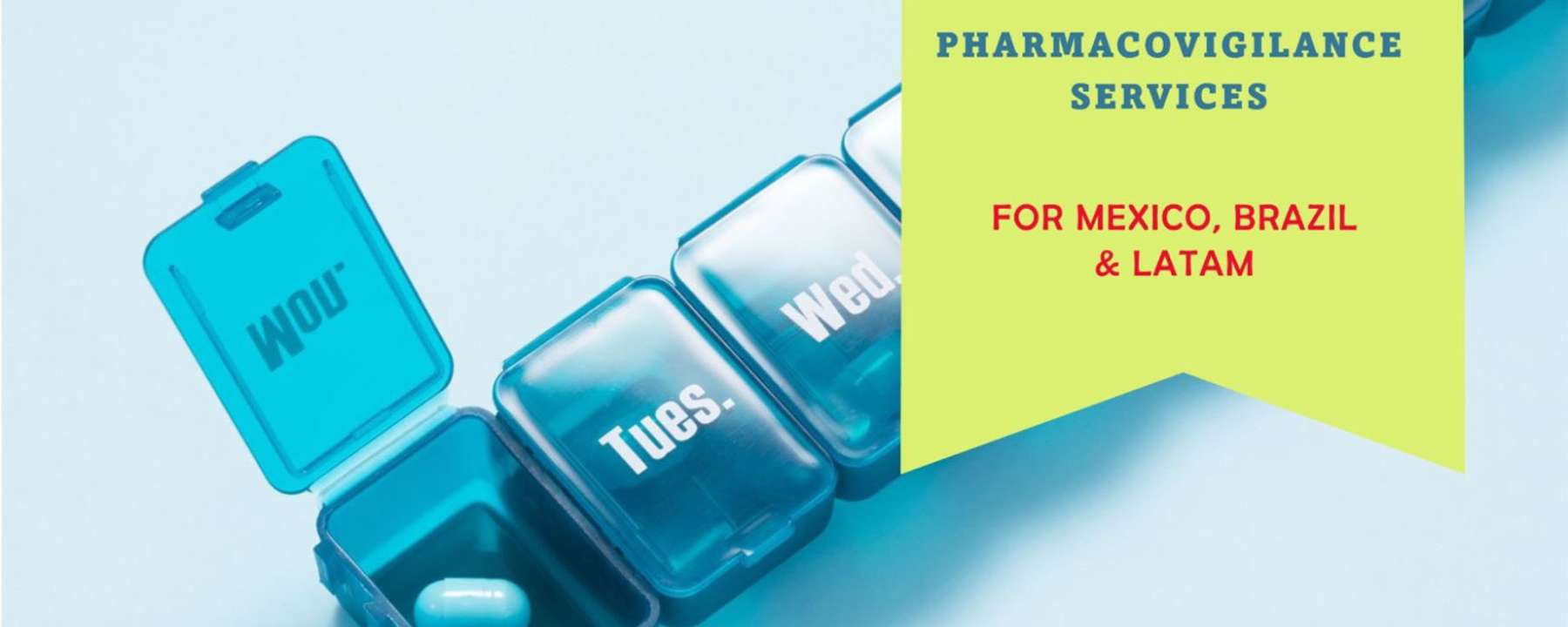
Pharmacovigilance Services in Mexico, Brazil, and Latin America
Pharmacovigilance refers to the set of activities related to the detection, assessment, understanding, and prevention of adverse drug events. Its importance lies in protecting public health by identifying and mitigating risks associated with drug use. In Latin America, particularly in Mexico and Brazil, pharmacovigilance has gained relevance in recent decades due to increasing access to medicines and the need to ensure their safety and efficacy.
Pharmacovigilance in Mexico
Mexico has developed a robust pharmacovigilance system, primarily coordinated by the Federal Commission for Protection against Health Risks (COFEPRIS). This body is responsible for the regulation and surveillance of pharmaceutical and health products.

1. Structure and Regulation:
- COFEPRIS leads pharmacovigilance, implementing regulations and guidelines governing drug supervision.
- Pharmacies, hospitals, and healthcare professionals are required to report any adverse events related to drug use.
2. Reporting Mechanisms:
- Mexico has the National Pharmacovigilance System (SNFV), which allows data collection on adverse reactions.
- Citizens can report adverse events through the COFEPRIS web portal or specific forms available at health establishments.
3. Challenges and Advances:
- Despite progress, challenges such as underreporting of adverse events and the need to improve healthcare professionals' training in pharmacovigilance persist.
- Initiatives like awareness campaigns and the implementation of information technologies have improved the reporting system.
Pharmacovigilance in Brazil
Brazil, being one of the largest and most populous countries in Latin America, has also developed a comprehensive pharmacovigilance system. The National Health Surveillance Agency (ANVISA) is responsible for drug regulation and monitoring.

1. Structure and Regulation:
- ANVISA coordinates pharmacovigilance activities, establishing clear regulations for the pharmaceutical industry and healthcare professionals.
- Pharmacovigilance programs are mandatory for pharmaceutical companies, which must periodically report to ANVISA on the safety of their products.
2. Reporting Mechanisms:
- The Health Surveillance Notification System (NOTIVISA) is the main platform for reporting adverse events.
- Citizen and healthcare professional participation in reporting adverse reactions is encouraged through educational campaigns.
3. Challenges and Advances:
- Similar to other countries in the region, Brazil faces challenges related to underreporting and the need to strengthen the reporting culture.
- ANVISA has implemented training programs and technological infrastructure improvements to facilitate data collection and analysis.
Pharmacovigilance in Latin America
Latin America as a whole has made significant progress in developing pharmacovigilance systems. However, the region shows great heterogeneity in the implementation and effectiveness of these systems.

1. Regional Cooperation:
- The Latin American Pharmacovigilance Network (RedLaFV) facilitates cooperation among countries, promoting information and experience exchange.
- The Pan American Health Organization (OPS) also plays a crucial role in supporting countries in developing their pharmacovigilance systems.
2. Common Challenges:
- Underreporting and lack of specialized resources are common problems in several countries.
- Variability in the capabilities of national pharmacovigilance systems reflects inequalities in resources and public health priorities.
3. Initiatives and Future:
- Training and education initiatives are essential to improve the reporting and management of adverse events.
- Integrating emerging technologies, such as artificial intelligence and big data, offers new opportunities to strengthen pharmacovigilance in the region.
Conclusion
Pharmacovigilance is an essential component for drug safety in Mexico, Brazil, and Latin America. While significant advances have been made, challenges remain that require continuous and coordinated efforts between governments, the pharmaceutical industry, and civil society. Regional cooperation and the use of innovative technologies will be key to improving the detection and management of drug-related risks, thereby ensuring better protection of public health in the region.
At Pro Pharma Research Organization, we offer a wide range of Pharmacovigilance and Case Processing services for Mexico, Brazil, and LATAM. These services include Adverse Event Monitoring, Signal Detection and Evaluation, Risk Minimization Strategies, and more. Contact us for more information.
Tags: #Pharmacovigilance #Detection #Evaluation #Understanding #Prevention #AdverseEvents #Medicines #Health #Identifying #Mitigating #Risks #Safety #Efficacy #COFEPRIS #SNFV #Undernotification #ANVISA #Regulation #Monitoring #Regulations #NOTIVISA #RedLaFV #OPS